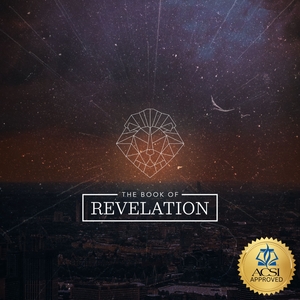Are all black people Hebrew Israelites? What is the group that calls themselves Hebrew Israelites?
Over the years, there has been a slow, but growing number of Black Americans who have since left the Christian faith in exchange for a false religion and sect known as the Hebrew Israelite Movement. This growing migration from the Christian church to a Black Religious Identity Culture (BRIC) such as the Hebrew Israelites Movement is caused by an identity dilemma. The struggle of identity for many Blacks stems from the history of slavery and mistreatment of blacks in America. For some blacks, they view Christianity as a “white man’s religion” rather than the Gospel of God having been revealed to man for the Salvation of the world. When Christianity is deemed as the “white man’s religion” it presents, not only a low view of God, but a diminished view of what it means to be made in the image (imago dei) of God. Dr. Eric Mason, in his book Urban Apologetics, mentions this beautiful statement: “Ethnicity is part of the beauty of the imago dei and the creativity of the Living God.
The Hebrew Israelites attempt to fix their beliefs of being from Israel based upon a faulty hermeneutic and lack of understanding of the history of Israel, the people of Israel, and a failure in understanding God’s redemptive and salvific plan for Israel to the Glory of God. The premise by which the Hebrew Israelites falsely claim they are the “true” Israel comes from an embellished and fanaticism of Israel’s history to identify the Jewish/Israelite history with that of the Black experience in America from a pre-Trans-Atlantic Slave trade period to today. The Hebrew Israelites draw most of their beliefs and similarities to the Israelites based on one common identifier: Slavery and captivity. So, where the Hebrew Israelite parallels the black American struggle of slavery to that of the slavery of the Israelites in Egypt, the theme of redemption history and personal connections draws heavily for this group.
Unfortunately, because of these common struggles of slavery between the Israelite people, historically as God’s chosen Nation, and the struggle of black slavery in America, the Hebrew Israelite Movement was birthed out of misidentification and a need to find identity somewhere, especially prior to the trans-Atlantic trade. One individual, a Hebrew Israelite, and arguably the first to start the first black church preaching that blacks were Hebrew Israelites, named Prophet William Saunders Crowdy, claimed to have had “special revelation” while clearing his fields outside an all-black town in Oklahoma in 1892.
So, as you can see, the growth of this movement began out of a desperate desire to find identity and similarity in a particular nationality rather than resting in the reality that each of us are created in the image of God and that our identity and salvation, as bible believing Christians, is not found in our ethnos, but rather our Lord and Savior, Jesus Christ. Secondly, that the struggles and disparities faced in this world is not alienated to a particular people group, but rather, because of sin in this world, we all will face suffering of some sort, and unfortunately this mistreatment had befallen many Blacks and other minorities during slavery in the Jim Crow laws of the south.
When considering what Heaven will look like, keep in mind Revelation 7:9:
Revelation 7:9 After these things I looked, and behold, a great multitude which no one could count, from every nation and all tribes and peoples and tongues, standing before the throne and before the Lamb, clothed in white robes, and palm branches were in their hands."
What we should do for our neighbors who find themselves in these camps is pray for them, that their eyes may be open to the truth of God’s word and that the blinders over their eyes may be released. The identity struggles for the black community, especially those who are direct descendants from slaves is a very sensitive matter, so approach them in truth and grace reminding them that in Christ, we have all we need.
Scripture quotations taken from the (NASB®) New American Standard Bible®, Copyright © 1995, 2020 by The Lockman Foundation. Used by permission. All rights reserved. www.lockman.org




